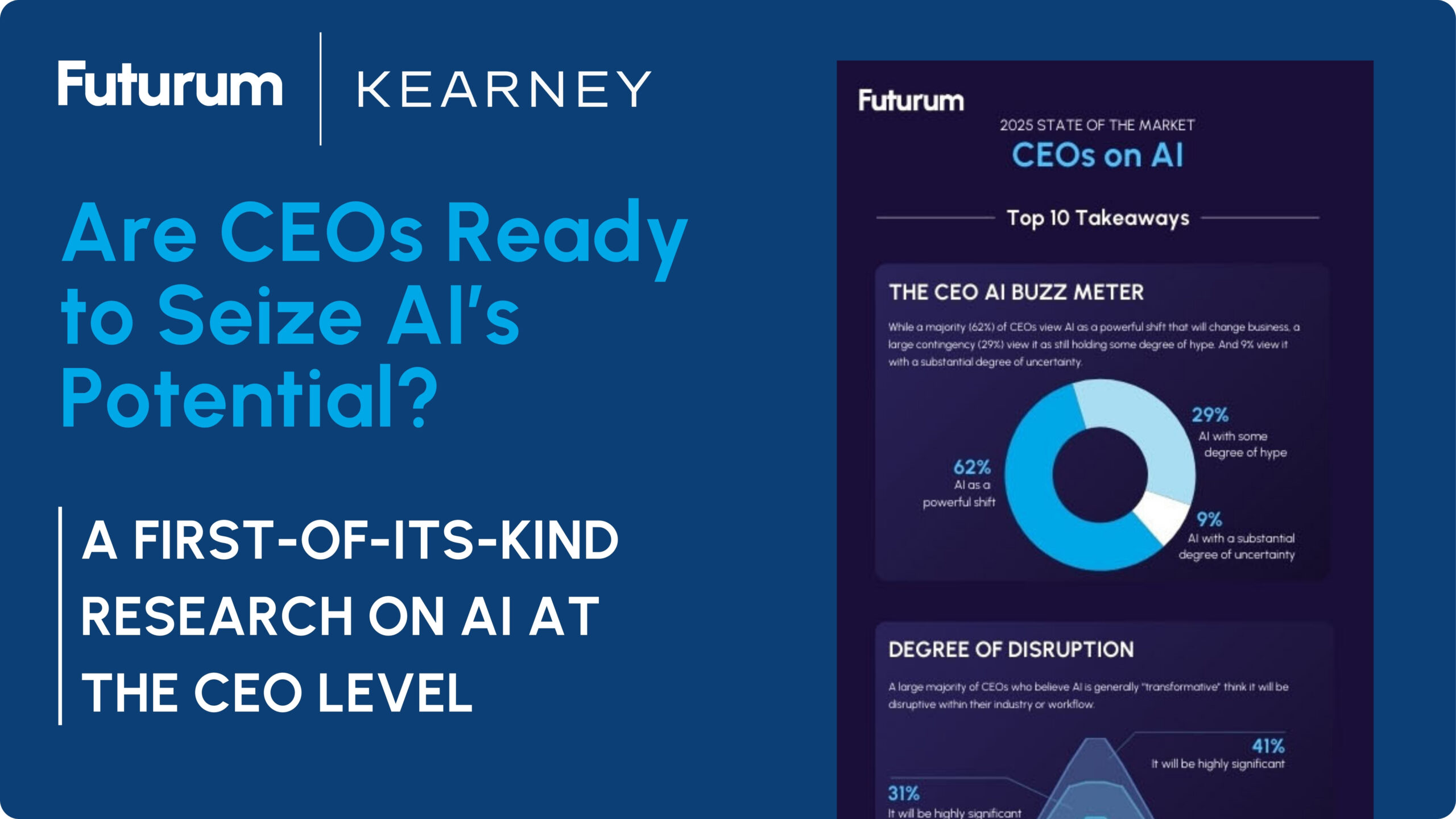|
|
 Dion Hinchcliffe presented for Futurum at AI Field Day 6 |
This Presentation date is January 29, 2025 at 16:00-17:00.
Presenters: Dion Hinchcliffe
 A new study by The Futurum Group and Kearney reveals that CEOs of established companies are overconfident in their ability to implement AI, despite facing challenges like cultural resistance and integrating with existing technology stacks. Digital native companies, on the other hand, are more agile in their AI adoption but often lack a cohesive strategic vision. The study suggests that successful AI implementation requires a balanced approach, involving domain-level expertise, cross-functional collaboration, and a long-term perspective on ROI.
A new study by The Futurum Group and Kearney reveals that CEOs of established companies are overconfident in their ability to implement AI, despite facing challenges like cultural resistance and integrating with existing technology stacks. Digital native companies, on the other hand, are more agile in their AI adoption but often lack a cohesive strategic vision. The study suggests that successful AI implementation requires a balanced approach, involving domain-level expertise, cross-functional collaboration, and a long-term perspective on ROI.
Despite recognizing AI’s potential, CEOs face challenges in implementing transformative AI strategies, with only 19% prioritizing long-term growth over short-term gains. Data readiness, strategic alignment, and change management are key barriers, while robust governance and talent acquisition are crucial for successful AI adoption. CEOs must address these challenges to bridge the gap between AI’s promise and actual business impact.
 In this AI Field Day session, VP and Practice Lead Dion Hinchcliffe presents the key findings of this survey to the delegate panel. Request access to the complete study and dataset on the Futurum Group website.
In this AI Field Day session, VP and Practice Lead Dion Hinchcliffe presents the key findings of this survey to the delegate panel. Request access to the complete study and dataset on the Futurum Group website.
How CEOs are Preparing for AI in 2025 – Futurum CEO Insights
Watch on YouTube
Watch on Vimeo
The Futurum Group’s presentation at AI Field Day 6, focusing on CEO perspectives on AI in 2025, revealed a significant disconnect between C-suite leadership and IT teams. While 59% of surveyed CEOs (from billion-dollar revenue companies globally) believe they’re leading AI strategy, this perception is largely driven by board pressure to compete in a rapidly evolving AI landscape. CEOs see AI not merely as a technological tool, but as a strategic imperative for business transformation affecting all organizational levels, understanding that failure to adapt will lead to disruption.
The study, conducted in partnership with Kearney, highlights a notable overconfidence among CEOs regarding AI readiness. Despite widespread recognition of AI’s potential (e.g., $20 trillion injection into the global economy by 2030, potential 5x return on investment), only 25% feel prepared. This unpreparedness stems from challenges like talent acquisition and the immaturity of AI technologies to address CEOs’ long-term strategic goals, which frequently involve developing entirely new products and services. The study emphasizes that successful AI adoption is strongly correlated with a decentralized leadership approach, rigorous ROI tracking, and a culture that addresses employee concerns proactively.
Successful AI implementation, according to the study’s findings on high-performing firms, hinges on several key factors. Decentralized leadership, where the vision is set at the top but execution is delegated, proves far more effective than a micro-management approach. Rigorous tracking of ROI is critical for demonstrating value and securing further investment. Finally, fostering a fearless culture that directly addresses worker anxieties about AI’s impact on jobs is paramount. The study concludes that while many CEOs are forging ahead with ambitious AI plans, a measured, data-driven approach, coupled with effective governance, is crucial to avoid costly failures.
Personnel: Dion Hinchcliffe








